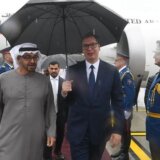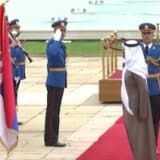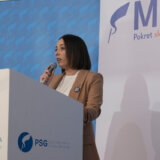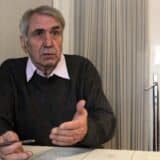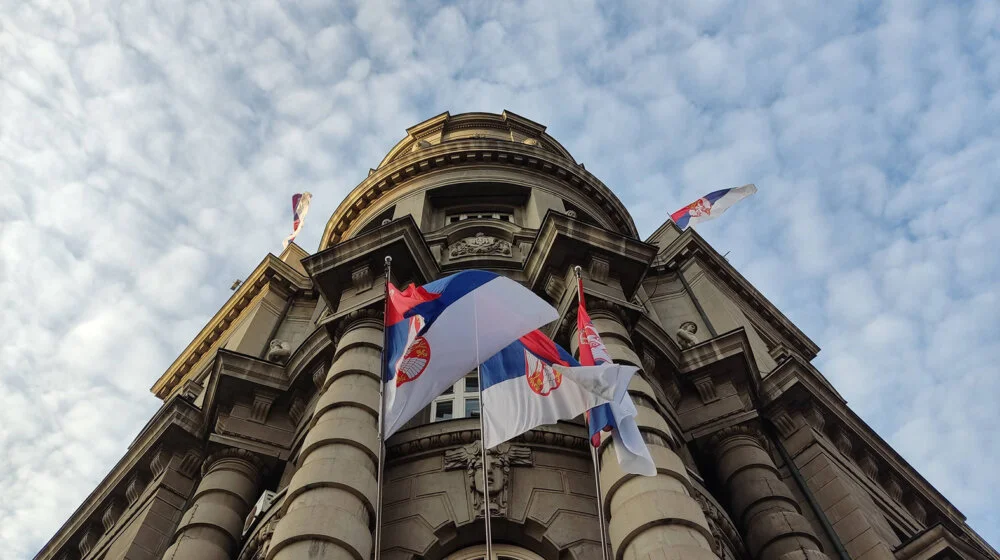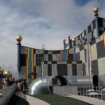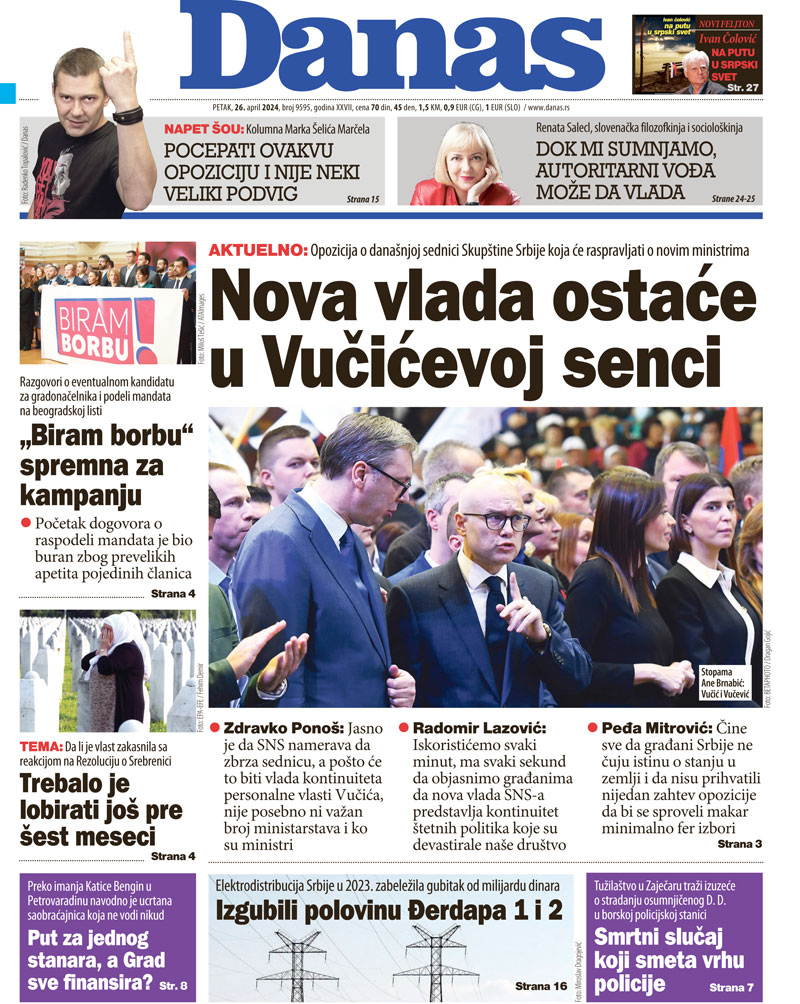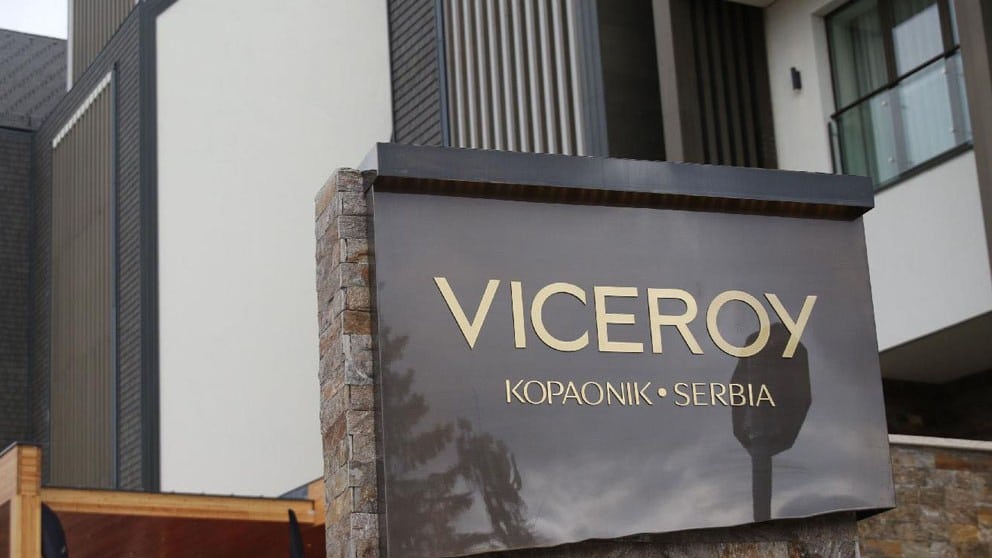 Foto: FoNet/ Božana Pavlica
Foto: FoNet/ Božana PavlicaProdaja hotela Jugobanke na Kopaoniku u julu 2013. bila je prva transakcija koju je Vlada obavila prema Sporazumu o saradnji i podsticanju ulaganja sklopljenom sa Ujedinjenim Arapskim Emiratima u februaru te godine i ratifikovanom u Skupštini mesec dana kasnije.
For English version, please scroll down
U startu, nešto nije bilo kako treba.
Prodaja hotela Jugobanke na Kopaoniku u julu 2013. bila je prva transakcija koju je Vlada obavila prema Sporazumu o saradnji i podsticanju ulaganja sklopljenom sa Ujedinjenim Arapskim Emiratima u februaru te godine i ratifikovanom u Skupštini mesec dana kasnije. U startu, nešto nije bilo kako treba. Ali, krenimo redom.
Sporazum koji je tadašnji prvi potpredsednik Vlade i ministar odbrane Aleksandar Vučić sklopio u Abu Dabiju sa prestolonaslednikom UAE šeikom Muhamed bin Zajedom obuhvatao je saradnju širokog spektra a naročito je podsticao sektor trgovine, poljoprivrede, naoružanja i nekretnina.
U tom poslednjem, predviđena je mogućnost da privatne firme iz UAE mogu sticati nepokretnosti koje su u vlasništvu Republike Srbije, pri čemu se, kao i na sve ostale poslove sklopljene po ovom sporazumu, na njih ne odnose zakoni Srbije.
Dokument koji je sa šeikom potpisao Vučić, bez obzira na to što mu tadašnja pozicija u Vladi nije dala takva ovlašćenja, ubrzo je dobio snagu zakona na osnovu koga je ne samo svaki biznis sa Arapima bio izvučen iz pravnog sistema zemlje, nego su i informacije o raspolaganju resursima zemlje postale potpuno nedostupne javnosti.
Tako je izvršena i prodaja hotela na Kopaoniku, koji je pre toga bio u stečajnoj masi Jugobanke.
Na licitaciji koju je za april 2013. zakazala Agencija za osiguranje depozita i sanaciju banaka, hotel je bio ponuđen po početnoj ceni od 3,7 miliona evra.
Zainteresovanih kupaca nije bilo iako se očekivalo da će se pojaviti bar MK Grupa, jer bi time zaokružila svoj hotelski kompleks na Kopaoniku.
Ali, pre nego što je i ponuđen na prodaju, bilo je objavljeno da je za taj objekat zainteresovan šeik Bin Zajed, koji je, navodno, bio očaran lepotom planine i poželeo je da tu sagradi rezidenciju.
Već nekoliko nedelja kasnije, Direkcija za imovinu otkupila je hotel, po dogovoru sa suvlasnicima (Jugobanka u stečaju, Alfa, NLB banka, Jugobanka iz Kosovske Mitrovice i firma Kop star) za 2,1 milion evra, čime je on prešao u državnu svojinu. Odmah potom, Direkcija ga je prodala, na osnovu zaključka Vlade od 15. jula 2013. firmi iz UAE, Properti investment LLC za 1,5 miliona evra.
Iz Vlade je tada potvrđeno da je kupac lično princ Bin Zajed.
– Bilo je očigledno da je to jedna ekonomski štetna odluka po interese države. Moguće da neko iz vlasti zaista zna da stručno objasni u čemu se sastoji opravdanost da nekretninu kupite po višoj ceni, a potom prodate po nižoj, ali je pitanje da li bi iko od ministara i funkcionera tako upravljao i svojim privatnim nepokretnostima – kaže za Danas advokat Ivan Ninić.
On naglašava da je ključni problem u tom krovnom sporazumu između UAE i Republike Srbije koji je ratifikacijom u skupštini dobio snagu zakona, to što je suspendovao sve procedure koje bi morale da se primene shodno pozitivnim propisima naše države.
– U takvoj situaciji praktično sve što država radi u ime i za račun nekih privatnih interesa i privatnih firmi iz UEA, dobija posaban strateški značaj koji nikome, ni nakon osam godina, nije jasan. Svako može da registruje firmu u UAE i da se ovde pojavi kao investitor za koga ne važe zakoni Republike Srbije. Mi zapravo sve vreme uopšte ne znamo ko stoji iza vlasničkog kapitala svih tih firmi iz UAE koje ovde vršljaju i kome mi to ovde rasprodajemo zemljište i druge nepokretnosti. A onda slučajno saznamo da naša država plaća usluge Toniju Bleru i njegovoj supruzi, pa nam vlast objasni da to budžet Srbije ništa nije koštalo, već su plaćanja izvršili UAE. Zašto bi neko iz UAE plaćao lobističke usluge u korist naše vlade bilo kome trećem? I tako se stalno usled nedostatka ključnih informacija vrtimo u krug, jer su svi aranžmani netrasprentni i dogovori se sprovede daleko od javnosti. Ne postoji monitoring realizacije svih tih aranžmana između Srbije i UAE ili možda postoji, ali se javno ne objavljuje, pa tako ne možemo da pratimo efekte i da ocenjujemo uspešnost svih tih ugovora – objašnjava Ninić.
Po nalogu novog vlasnika, već u leto 2013. stari hotel je srušen, ali je lokacija gotovo četiri godine bila u mirovanju. Mediji su spekulisali da su se u međuvremenu pojavili šumovi na relaciji Vučić – Bin Zajed, da se šeik povukao iz vlasništva pa čak i da je to preuzeo neko od srpskih biznismena. Potvrde ili demantija nema, jedino što je umesto ranijih najava da će to biti privatna rezidencija princa, 2017. počeo da se zida luksuzni hotel a ovoga leta je i otvoren kao deo lanca Viceroy Grupe. Ko je vlasnik i dalje se ne zna.
– Globalni ugostiteljski lanac Viceroy je operater Viceroy Kopaonik Srbija hotela i zadužen je za upravljanje ovim projektom u partnerstvu sa domaćom investicionom kompanijom Kopaonik Property Investments KPI doo i Rojal Grupom. Sa ukupnom investicijom od 54 miliona evra, ovaj objekat je izgrađen na mestu gde se nalazila stara, napuštena zgrada, sa ciljem da se unapredi turističko iskustvo i ponuda Srbije, a Kopaonik i njegove neverovatne prirodne lepote dodatno predstave u svetu kao atraktivna destinacija – kažu za Danas u Viceroy Grupi i dodaju da „dodatni detalji o vlasništvu partnerskih kompanija nisu u nadležnosti operatera“.
U Viceroy kažu i da kao hotelski operater u portfoliju imaju hotele širom sveta sa različitom vlasničkom strukturom i pojašnjavaju da su vlasnici na Kopaoniku „domaća investiciona kompanija KPI doo i kompanija Royal Group, koja posluje kao nezavisna razvojna kompanija“.
Sve više tajni
Srbija je i ranije imala slične međudržavne sporazume o saradnji u određenim oblastima, pa su takvi potpisani sa Rusijom, Azerbejdžanom i Kinom. Oni su bili manje-više javni, u skladu sa nacionalnim zakonodavstvom o obaveznom pristupu informacijama od javnog interesa. Sporazumom koji je sklopljen sa UAE, Vučić je uspostavio novi model. Javnosti je uskraćeno pravo da pristupa i informacijama iz drugih sporazuma, pa je načelo „državne tajne“ počelo da se primenjuje i na kasnije ugovore sa Kinom.
Čekajući Direkciju
Direkciju za imovinu, po odredbama Zakona o slobodnom pristupu informacijama od javnog značaja, još 7. oktobra pitali smo da li joj je Zaključkom Vlade od 15. 7. 2013. naloženo da od poverilaca otkupi hotel Jugobanke na Kopaoniku po ceni od 2,1 milion evra a proda ga arapskoj firmi Properti investment za 1,5 miliona evra, ili je do formiranja cena u te dve transakcije došlo na drugi način (i koji). Pitali smo i iz kojih sredstava je pokrivena razlika između kupovne i prodajne cene i ko je u ime Vlade pregovarao sa predstavnicima arapske firme oko kupovine hotela? Kako je rok za dostavljanje odgovora istekao, zatražili smo informaciju u kojoj je fazi zahtev. Najpre nisu mogli da nađu mejl, tvrdili su da pitanja nisu ni zavedena, ali kada im je rečeno da su potvrdili prijem, pronađen je samo što onda nisu mogli da utvrde kom je službeniku prosleđeno. Kako su im telefonski pozivi na 15-20 minuta dosadili, obećali su da će javiti čim utvrde ko je trebalo da sroči odgovore. To je bilo u četvrtak, oko podneva. Još se nisu javili.
* Sadržaj je rezultat istraživanja sprovedenog u okviru projekta „Transparentnost učešća države u stranim investicionim projektima“. Stavovi izneti u tekstu su stavovi autora i ne izražavaju nužno stavove donatora.
ENGLISH VERSION
The sale of the Jugobanka hotel on Kopaonik started the series of disputed deals with the United Arab Emirates
Who Made Money in the “Pay More to Sell Cheaper” Transaction?
Belgrade – The sale of the Jugobanka hotel on Kopaonik in July 2013 was the first transaction made by the Serbian Government under the Agreement on Cooperation and Investment Promotion signed with the United Arab Emirates in February of that year and ratified by the Serbian Assembly a month later. Something was not right from the very onset. But let us start from the beginning.
The agreement that the then First Deputy Prime Minister and Minister of Defense Aleksandar Vučić signed in Abu Dhabi with the UAE Crown Prince, Sheikh Mohammed Bin Zayed, included a wide range of cooperation and especially facilitated trade, agriculture, arms trade, and real estate sector. In the latter, the agreement provided that private companies from the UAE can acquire real estate owned by the Republic of Serbia, and that these acquisitions, as well as all other transactions concluded under this agreement, are not subject to the laws of Serbia.
The document, which Vučić signed with the Sheik, regardless of the fact that his position in the Government did not give him such powers at the time, soon gained the force of law on the basis of which not only every business deal with Arabs has been extracted from the country’s legal system, but also any information about the dealings with country’s resources has become completely inaccessible to the public.
This was the way a hotel on Kopaonik, which had been previously in the bankruptcy estate of Jugobanka, was sold. At the auction scheduled for April 2013 by the Agency for Deposit Insurance and Bank Rehabilitation, the hotel was offered at a starting price of 3.7 million euros. There were no interested buyers, although it was expected that at least MK Group would show interest in order to crown its hotel complex on Kopaonik. But, even before it was offered for sale, it had been announced that Sheikh Bin Zayed, who was allegedly enchanted by the beauty of the mountain and wanted to build a residence there, was interested in purchasing the building. A few weeks later, the Property Directorate bought the hotel, in agreement with the co-owners (Jugobanka in receivership, Alfa, NLB Bank, Jugobanka from Kosovska Mitrovica and the Kop Star company) for 2.1 million euros, transferring it to the state ownership. Immediately afterwards, the Directorate sold it, based on the Government’s Decision of July 15, 2013, to a company from the UAE, the Property Investment LLC, for 1.5 million euros. It was then confirmed by the Government that the buyer was personally Prince Bin Zayed.
– It was obvious that it was a decision which was economically harmful for the interests of the state. Perhaps there is someone in the government who can give an expert justification for buying real estate at a higher price and then selling it at a lower price, but the question is whether any of the ministers and officials would manage their private real estate in the same way – lawyer Ivan Ninić told the Danas.
He emphasizes that the key problem in the umbrella agreement between the UAE and the Republic of Serbia, which was given the force of law by ratification in the Assembly, is that it suspended all procedures that would have to be applied in accordance with the positive regulations of the state of Serbia.
– In such a situation, practically everything that the state does in the name and on behalf of some private interests and private companies from the UEA, has acquired a special strategic importance status that is not clear to anyone even eight years later. Anyone can register a company in the UAE and appear here as an investor when the laws of the Republic of Serbia do not apply. In fact, throughout this time we have not had any idea on who is behind the ownership capital of all those companies from the UAE that do business in Serbia and to whom we sell Serbian land and other real estate. And when we accidentally found out that our state pays for the services of Tony Blair and his wife, the government explained to us that it did not cost the budget of Serbia anything, as the payments for the Blairs’ services were made by the UAE. Why would someone from the UAE pay for lobbying services for the benefit of our government to anyone else? Due to the lack of key information, we are constantly spinning in a circle, because all arrangements are non-transparent, and agreements are implemented hidden from the public. There is no monitoring of the implementation of all these arrangements between Serbia and the UAE, or maybe there is, but it is not made public, so we cannot monitor the effects and evaluate their success – Ninić explains.
The new owner ordered the demolition of the old hotel in the summer of 2013, but the location was dormant for almost four years after it had been torn down. The media speculated that, in the meantime, there were noises in the Vučić-Bin Zayed relationship, that the Sheik withdrew from ownership, and even that it was taken over by one of the Serbian businessmen. While there is no confirmation or denial of this information, contrary to the earlier announcements that it would be the prince’s private residence, a construction of a luxury hotel started in 2017, and the hotel was opened this summer as a part of the Viceroy Group chain. It is still unknown who the owner is.
– The global hospitality chain Viceroy is the operator of the Viceroy Kopanik Serbia Hotel and is in charge of managing this project in partnership with the domestic investment company Kopaonik Property Investments KPI d.o.o. and the Royal Group. With a total investment of 54 million euros, this facility was built on the site of an old, abandoned building, with the aim of improving the tourist experience and offer of Serbia, and Kopaonik and its incredible natural beauty are additionally presented in the world as an attractive destination – the Viceroy Group said in its statement to the Danas, adding that „any additional details on the ownership of partner companies are not within the competence of the operator.“
The Viceroy also noted that, as a hotel operator, they have in their portfolio hotels around the world with a different ownership structure and explained that the owners of the Kopaonik property are „the domestic investment company KPI d.o.o. and the Royal Group, which operates as an independent development company“.
Piling Up Secrets
Serbia has had similar interstate agreements on cooperation in certain areas before, and such agreements have been signed with Russia, Azerbaijan and China. They were more or less public, in accordance with the national legislation on mandatory access to information of public interest. With the agreement concluded with the UAE, Vučić established a new model. The public was denied the right to access information from the other agreements, too, and the „state secret“ classification has also been applied to later agreements with China.
Waiting for the Directorate
In line with the provisions of the Law on Free Access to Information of Public Interest, we asked the Property Directorate on October 7 whether the Government, by its July 15, 2013 Decision, ordered them to buy the Jugobanka Hotel on Kopaonik from creditors at a price of 2.1 million euros and sell it to the Arab company Property Investment LLC for 1.5 million euros, or the prices in those two transactions were formed in another way (and, if so, which one). We also asked from which funds the difference between the purchase and sale price was covered and who, on behalf of the Government, negotiated the sale of the hotel with the representatives of the Arab company? After the deadline for submitting the response had expired, we requested information on the status of the request. At first the Directorate could not find the e-mail and claimed that the questions were not even registered, but, when they were told that they had confirmed the receipt, they could not then determine to which officer it was forwarded for action. Annoyed by our repeated telephone inquiries every 15-20 minutes, they promised to send a reply to our request as soon as they determined who was supposed to write it. This was on Thursday, around noon. We have not heard from them since.
The content is the result of the research carried out within the project „Transparency of State Participation in Foreign Investment Projects“. The views expressed in the text are those of the authors and do not necessarily reflect the views of the donor.
Pratite nas na našoj Facebook i Instagram stranici, ali i na Twitter nalogu. Pretplatite se na PDF izdanje lista Danas.


